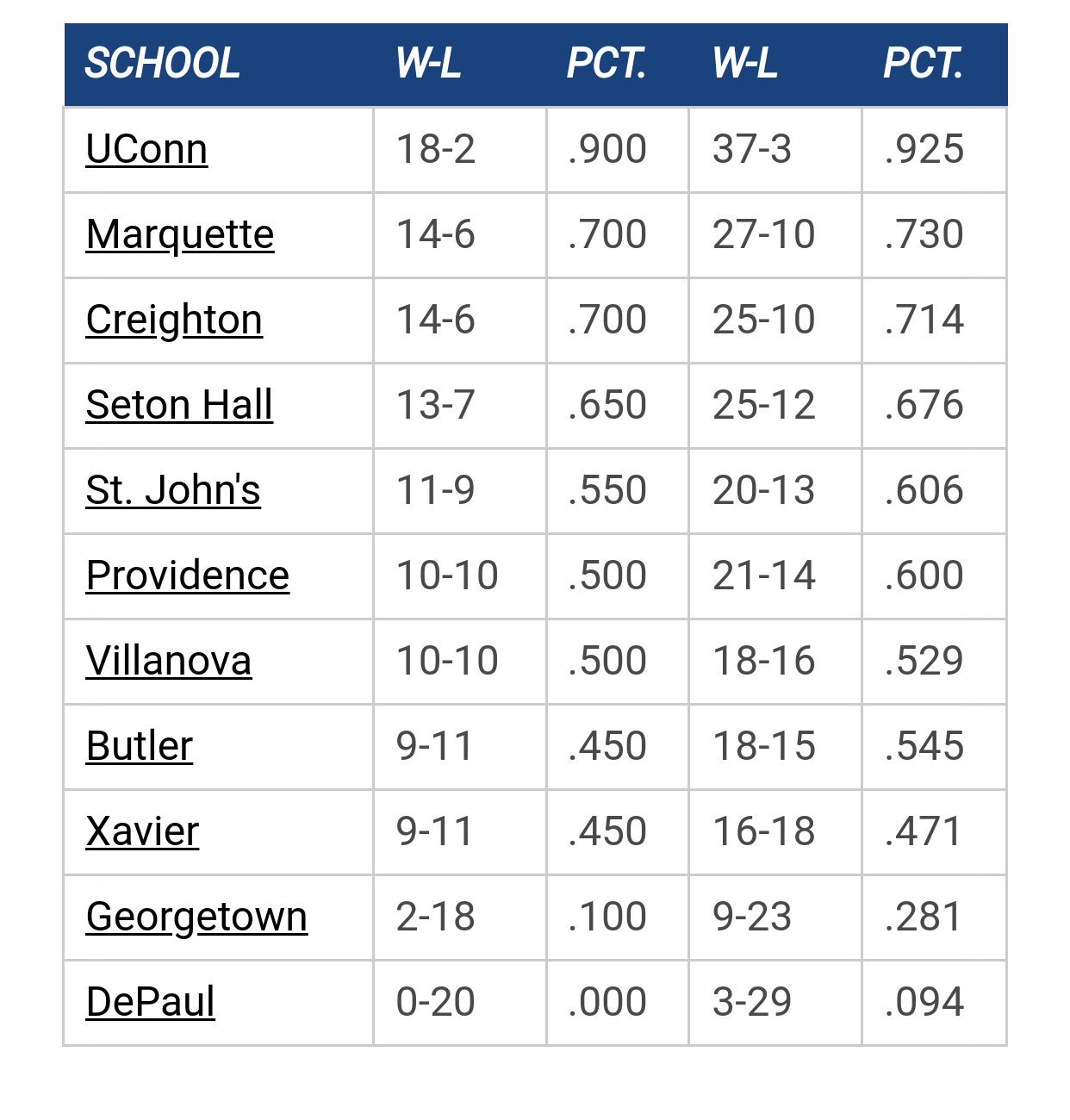- Welcome to MUScoop.
Transfers in/out 2025-2026 by Galway Eagle
[February 20, 2026, 11:51:02 PM]
Can this team win 4 in a row at the Garden? by #UnleashJosh
[February 20, 2026, 11:06:34 PM]
Marquette NBA Thread by BE_GoldenEagle
[February 20, 2026, 09:43:56 PM]
2025-26 College Hoops Thread by Billy Hoyle
[February 20, 2026, 09:15:00 PM]
2025-26 Big East Conference TV Schedule by Mr. Nielsen
[February 20, 2026, 07:26:40 PM]
2026 Transfer Portal Wishlist by muwarrior69
[February 20, 2026, 04:35:11 PM]
Shaka Smart 02/18/2026 by JTJ3
[February 20, 2026, 04:33:39 PM]
[February 20, 2026, 11:51:02 PM]
Can this team win 4 in a row at the Garden? by #UnleashJosh
[February 20, 2026, 11:06:34 PM]
Marquette NBA Thread by BE_GoldenEagle
[February 20, 2026, 09:43:56 PM]
2025-26 College Hoops Thread by Billy Hoyle
[February 20, 2026, 09:15:00 PM]
2025-26 Big East Conference TV Schedule by Mr. Nielsen
[February 20, 2026, 07:26:40 PM]
2026 Transfer Portal Wishlist by muwarrior69
[February 20, 2026, 04:35:11 PM]
Shaka Smart 02/18/2026 by JTJ3
[February 20, 2026, 04:33:39 PM]
The absolute only thing required for this FREE registration is a valid e-mail address. We keep all your information confidential and will NEVER give or sell it to anyone else.
Login to get rid of this box (and ads) , or signup NOW!
Georgetown Date/Time: Feb 24, 2026, 6:00pm TV: NBC SN Schedule for 2025-26 |
||||||
User actions


